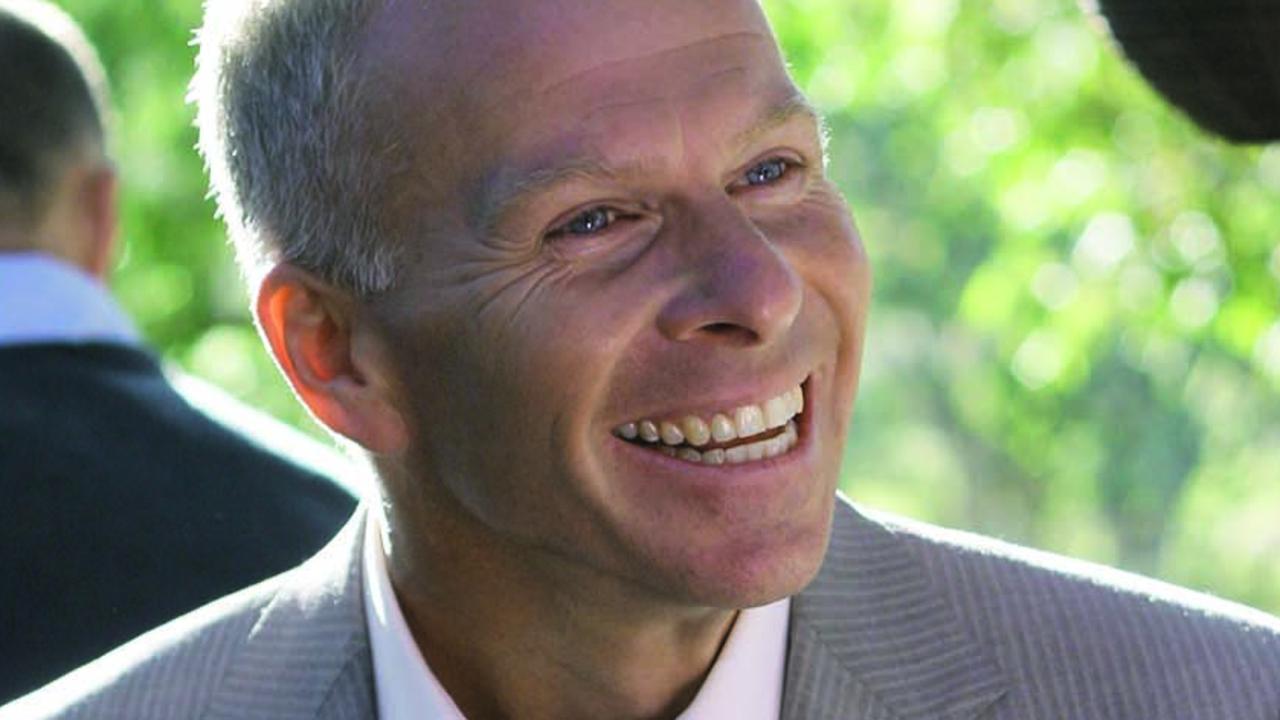Sordid picture trail
AUSTRALIAN Volunteers International is our version of the American Peace Corps and its motto is: "What goes around, comes around".
AUSTRALIAN Volunteers International is our version of the American Peace Corps and its motto is: "What goes around, comes around", a reference to the good work by its volunteers.
Funded by the AusAID, it sends Australians working in fields such as health and education to developing countries.
It boasts that the work of its volunteers "empowers people to develop their own communities, access resources and achieve their full potential".
But for a group of women in Papua New Guinea, what allegedly came around as a result of the actions of one of its volunteers has done little to help them develop their communities and achieve their full potential.
The women allege volunteer teacher Russell Owen Lorback molested them and allegedly documented the abuse in a series of photographs that eventually ended up circulating and ruining their lives.
Tracked down in their remote province last month, four of the women complained nothing had been done to properly investigate the case by the Australian government or the PNG authorities.
Lorback has vigorously denied the allegations, blaming jealous girlfriends for a row that sparked a police investigation.
But he has never been interviewed by police, having left the country shortly after his home was raided and local police found a computer disc allegedly containing the images.
Australian authorities have admitted they cannot investigate the case while any sort of PNG investigation is under way, and the PNG investigation appears to have stalled over an internal dispute about whether police had
illegally copied the images.
Jane (not her real name), one of the women who alleges she was photographed by Lorback and ended up being sacked over the scandal, says: "I feel cheated. People found out what happened. I was charged myself."
When the former Victorian teacher arrived in the town of Namatanai in PNG's northeast in the mid-1990s, the students were impressed. They described him as a good teacher who made an extra effort to help his students.
Lorback was enthusiastic enough to invite some of them to his home for tuition. But the students alleged there were other activities on the curriculum.
"I went there and he told me he wanted to take a picture of me," Jane claims.
"He told me that back in Australia it was normal for women to be photographed without wearing any clothes. I was concerned but I did it. He tried to touch me once but I pushed him away. He exposed himself to me. He told me, `Is this the first time you have seen a white man's penis?' "
Jane was confused. "In class he would treat me just like it had never happened." Lorback denies he ever exposed himself or tried to touch any of his pupils.
His photo sessions in the remote town of Namatanai were allegedly the start of a something more serious.
In 1999, Lorback shifted from Namatanai to the hill town of Malabanga in East New Britain province, where he taught at the local high school and set up a computer laboratory. But his actions aroused suspicion.
High school department head Lailak Baining, who lived near Lorback in the school compound, often noticed girls visiting the Australian's bungalow.
"It was not right," she says.
"In our culture we are very religious; it is not right for a young girl to be with an older man like that. I wasn't the only one that noticed it."
In 2002, Lorback moved again, this time to the dusty streets of Kokopo, a coastal town that sprang up after a volcanic eruption dumped tonnes of ash on the nearby provincial capital, Rabaul, in 1994.
Lorback lived there on the grounds of the Kokopo High School. His bungalow was a simple structure set 4m off the ground to catch the breeze and surrounded by fruit trees and palms, with a spectacular view over the bay to the volcano.
He soon found a new group of girls, some of them from the poorest area in the district.
In 2003, Ella (not her real name), whose aunt knew Lorback from a previous association, went to his house. Ella is a member of the local Tolai tribe, whose village sits in a moonscape of volcanic dust ringed with dead or dying palm trees, overshadowed by ash clouds from the constantly grumbling Tavurvur volcano.
Lorback allegedly offered Ella, then aged 13, and her aunt accommodation after the pair missed the bus to Rabaul. "We had been trying to get back home but there were no buses so we decided to stay there. He knew my aunt and he sent my aunt downstairs to sweep around the house," Ella claims as she sits in an ash-covered shed away from where other villagers might see her.
Lorback, she says, told her he wanted her picture to send back to his mother in Australia. "I didn't understand. I was uncomfortable," she says. Lorback allegedly made her undress and then photographed her. There were others.
Another girl, Josie (not her real name), who now lives in a small village up in the hills behind Rabaul, alleges she was just 15 when Lorback paid her 10 kina (about $4) to take her clothes off and be photographed. Her uncle tells The Australian that the family found such behaviour deeply offensive.
Lorback also allegedly photographed older women with whom he had contact through his teaching activities.
Jean (not her real name) says she was 19 when he photographed her. She later begged him to delete the photos, but the pictures were allegedly never deleted.
Years later, when the images began to circulate, the lives of Jean and the others would be turned upside down.
"I couldn't go out," Jean says. "The local boys all knew and they would be looking at me and laughing and making comments. "I wanted to kill myself. I didn't want to keep doing my study but my mother made me do it. But it's been very hard."
Jane, who is now in her 20s, is furious and wants compensation. She had obtained a good job with the provincial administration but was sacked as soon as the photos circulated.
"We were doing a course and someone came and gave me a letter to read," she says. "I went home to read it during my lunch hour and I never went back."
The letter said she was sacked for participating in pornography.
Things got worse. Police charged her with producing pornography. She was forced to go to court and sign statements and pay $90 bail. Eventually the charges were dropped but by then her identity was well known and her reputation destroyed.
Charging the alleged victims wasn't the only problem with the investigation. After Kokopo police were tipped off in 2004 about Lorback's alleged association with girls and photographs, they raided his home on New Year's Day in 2005. The officers allegedly seized dozens of computer discs and a box of computer equipment. The material was passed to the police station's forensic section.
In the meantime, no travel restrictions were imposed on Lorback. Within days of the raid he travelled back to Australia.
Months later, the Kokopo officers found pictures of Lorback's alleged victims on one of the CDs.
The investigators obtained head shots of the girls in the images, which were passed on to others tasked with tracing them. They estimated there were about 30 females in the pictures and tracking them down took months, but they eventually found 12 who were prepared to give statements.
But then police from Port Moresby became involved. Local detectives were surprised to get a call from tough-talking Port Moresby senior officer Joe Kapinias, who took over the investigation and charged several detectives with copying the images.
Last year, nearly four years on, Kapinias was quoted as being committed to formulating a case for extradition. He declined to comment for this story.
Lorback, meanwhile, has resumed a normal life in north Queensland. Located in his modest home in the inner suburbs of Innisfail last month, he denied any wrongdoing and said he left PNG because he feared he would not get a fair trial.
He said he has never been investigated by Australian Federal Police, despite contacting them at one point to ask if they were doing anything. He denied being involved with underage schoolgirls and blamed former girlfriends in PNG for the investigation. He said he did not know what the age of consent was in the country.
"One was a bit jealous and she . . . told the police, and that was about it," he said.
"I'm sure the allegations were wrong. I had a couple of girlfriends but they certainly weren't young. They might have been 17, they might have been 18. I don't know. I actually don't know what the legal age is in Papua New Guinea."
The PNG Crimes Act says a person who uses someone under the age of 18 to produce pornography can face up to 15 years' jail.
Lorback denied producing pornography but said he had photographed his girlfriends. "Everybody does it," he said.
He said his teaching record was impeccable and denied any of the girlfriends were from his school, but acknowledged he did know one of his accusers.
"They certainly weren't all schoolkids. Maybe one but she would have been in grade 12 at the time. It wasn't a relationship. There was no sex involved. There was no exposing at all. Underage stuff? You would have to be crazy. You are a guest in another country and I had seen the PNG police in action and the justice system in action as well. It's something to certainly steer clear of."
He admitted downloading from the internet. "I was probably downloading a bit of porn from the internet, which I understand is illegal up there, but it was all completely private and I don't know what was planted," he said.
He left PNG because he feared he would not get a fair hearing.
"I talked to quite a few people who had been there a long time and who had a bit of experience with the justice system, and they just said disappear because they knew pretty much what happens with the justice system. So I was very, very happy to take their advice," he said.
Port Moresby police this month said they are still investigating. The Royal Papua New Guinea Constabulary's acting deputy commissioner Rafael Huafolo acknowledges there have been some problems with the statements. He says the situation has been traumatic for the alleged victims. "There's a lot of shame and that sort of thing and embarrassment, and so they don't come quickly to the authorities."
Such allegations of child abuse overseas involving Australia citizens can be investigated by Australian authorities under the Child Sex Tourism Act, but the AFP this week told The Australian they cannot investigate while an investigation is under way in the PNG.
"It would be a case of double jeopardy because it would be doubling up," an AFP spokeswoman says.
Australian Volunteers International chief executive Dimity Fifer says AVI is aware of the allegations. "These allegations are of a very serious nature and Australian Volunteers International will assist authorities fully with any investigation that might take place," she says. "AVI conducts extensive checks on all prospective volunteers prior to their assignment."
A spokeswoman for AusAID, which says it manages the AVI program, says it has now been informed about the allegations.
"Mr Lorback was a volunteer through Australian Volunteers International," she says. "AusAID will co-operate fully with all relevant authorities in the investigation and resolution of this matter.
"AusAID has a child protection policy. The policy applies to all AusAID staff, including those based overseas, and to all contractors and non-government organisations funded by AusAID."
callinanr@theaustralian.com.au


